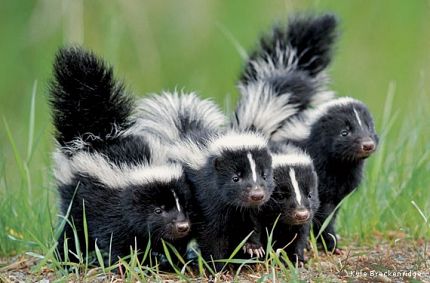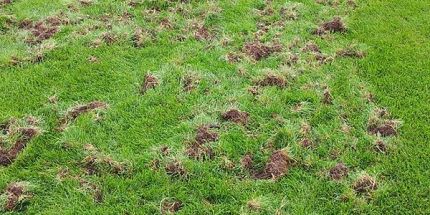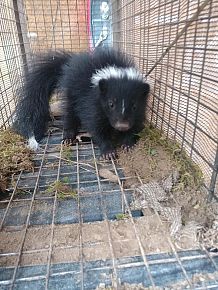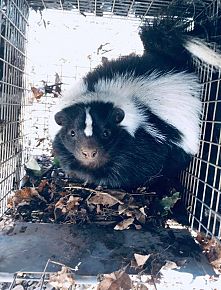
Identifying Skunks
The striped skunk features two prominent, wide stripes that can extend along the length of its body, presenting either a mostly white or black appearance. In contrast, the Eastern spotted skunk lacks well-defined striping and typically displays black and white patches. Both species share a size similar to that of a house cat, characterized by a petite head, short legs, and a fluffy tail. Skunks are primarily nocturnal creatures, with their peak activity occurring during the nighttime hours. They predominantly consume small animals and plant matter for their diet.

Problems and Damage
Lawns containing tempting vegetation such as nut trees, gardens, and bird feeders are particularly appealing to skunks. Once they locate a reliable food source, skunks may dig burrows beneath porches or sheds, and if they find a way in, they could take up residence in your crawlspace. When skunks enter your home, their feces and urine can contaminate the area. If neglected, skunks can start causing damage to ductwork or even structural issues. Skunks are potential carriers of diseases like rabies, leptospirosis, canine distemper, and roundworm. However, it's essential to note that not all skunks carry diseases, but any scratches or bites should receive immediate medical attention.

Prevention and Exclusions
To keep skunks out of your home, Freedom Trappers can locate and seal any possible entry points using strong and durable materials that effectively prevent skunks from re-entering your residence.

Skunk Removal
If you've encountered a skunk intrusion in your home or on your property, Freedom Trappers is here to provide expert skunk removal assistance. Our Wildlife Specialists possess extensive knowledge of skunk behavior, enabling them to efficiently and compassionately trap and remove the skunks from your premises.


 Back
Back